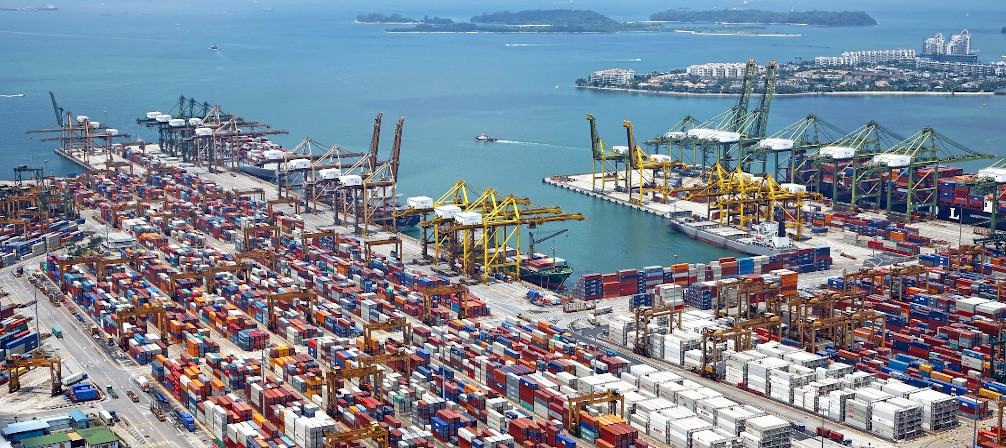28 July, 2020

An unprecedented outbreak of the novel coronavirus has left the world in peril of uncertainty and shock, shattering the global economy and causing a threat to human existence. The World Health Organization has officially declared it as a Public Health Emergency, asking countries to impose nation-wide lockdowns and practice social-distancing, to avoid the spread of the virus. Though lockdowns can be an effective solution to curb the pandemic, unfortunately, it has been a direct threat to our macro-economy and employment ratios around the world.
Most of the international companies and firms have encountered a massive downturn in their businesses, claiming a steep decline in production activities and output generation. Thus, disrupting the global value chains and affecting large-scale industries like automobiles, electronics, machinery, etc. While companies like Brooks Brothers, APC Automotive, and Alex Toys have encountered major losses due to the pandemic, some of the industries like pharmaceuticals, media-services and health-company producers were lucky enough to experience a rise in consumer’s demand and upsurge trade activities. Netflix has recorded an upsurge of 16 million subscribers in the first quarter of the outbreak, therefore benefitting from lockdown directives imposed by affected countries. Before analyzing the future prospects of the global pandemic and its effect on major economies of the world, we first need to highlight the present condition that has affected trade and businesses immensely.
Recently, a worrisome statistic was provided by the International Monetary Fund (IMF) which has projected that the global GDP loss over 2020 and 2021, from the pandemic crisis, could be around 9 trillion dollars. The World Trade Organization has warned the economies by predicting that global trade could experience a steep fall between 13 to 32 percent in 2020. The ongoing lockdowns and slowdown in the tourism and hospitality sector can be directly linked to an unprecedented fall in global trade. Not only a fall in tourism can be held responsible for an economic slowdown, but a constant decrease in demand for consumer products has also added to the problem. However, a severe hit in the Chinese economy has witnessed a decline in the majority of its exports, affecting those countries that are heavily dependent on Chinese goods. Whether it’s Japan or India, imports from China contributes a large portion of the intermediate goods used by large producers and companies in the process of manufacturing. The country is officially regarded as the world’s largest manufacturing hub, but with the current economic strain and low production activities (especially in the capital and intermediate goods), has forced many countries to search for alternative markets around the world.
A significant economic turmoil, especially in the sphere of trade, is particularly faced by the middle eastern-region, where countries like Yemen and Syria are already suffering from political and regional instability. Difficulty to feed their population because of an increase in global food prices, export reduction due to loss of consumer demand, and lack of medical facilities and equipment in these regions, have landed them in a strenuous situation. Apart from this, the Asian markets are currently witnessing the largest loss, with Singapore declaring a probable shrink in its GDP between 1 to 4.0 percent. Moreover, strong economies like the US, China, and the European Union are considered as ASEAN’s main trading partners, amounting to 50 percent of ASEAN’s total trade in goods. A decline in their trade activity has caused risk and disruption for the ASEAN countries, who are still trying to overcome their economic barriers. Later, in April, Europe became the epicenter of the virus and observed a huge increase in the number of coronavirus cases. Tourism, trade, financial markets, investment, travel, manufacturing, and other areas are in a vulnerable position, posting a threat to businesses and employment in the whole region. The European Union (EU) has predicted that its economy will contract by 7.5 percent in 2020, as travel barriers and border restriction seems to continue. In addition to this, the second largest trading partner of EU, the Chinese shutdown of manufacturing markets has caused huge losses to European markets and vendors.
There is an urgent requirement to introduce new trade policies and revive the economic activities around the world, for countries to cope-up with the ongoing pandemic. Even though some of the economies like New Zealand is back on track, there is still a need to consider and administer those countries, who are already experiencing a slower pace of growth and other social barriers. With appropriate measures and distinct policies, the world trade could resume and function to restore the global GDP.
The views expressed above belong to the author(s).
Other Research Articles
Study on the Gaps of the Capacity of Nepalese Logistics Service Provider
April 07, 2024
Migration and Nepal’s Economy: The Paradox of Development
August 13, 2023
Presence of China and India in Africa: What it Entails?
May 25, 2021
FDI post Covid-19
May 19, 2020